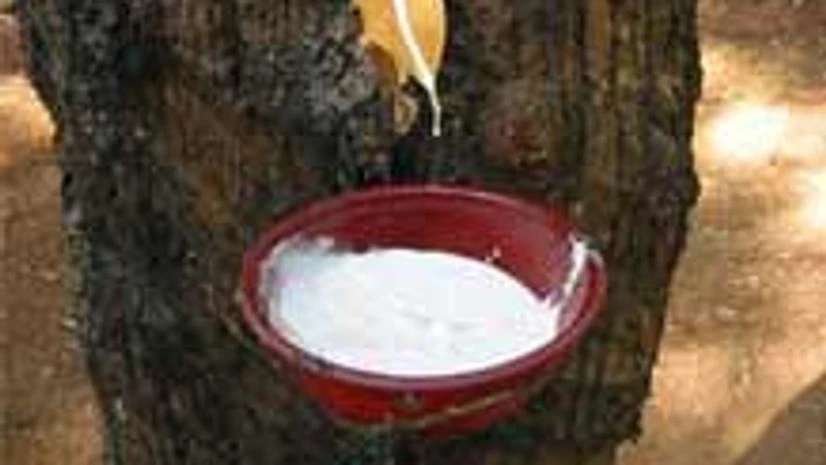Natural rubber is poised to emerge as a potent growth driver for economic relations, which had remained muted over the years, between India and the Philippines.
A 35-member delegation from the Philippines, including government officials, natural rubber (NR) and rubber products manufacturers, visited India recently and held wide ranging talks with the Rubber Board, Rubber Research Institute of India and the industry body All India Rubber Industries Association (AIRIA).
"Philippines has identified India as a key partner for reinvigorating its rubber sector as India has strengths across the entire rubber spectrum including rubber farming, processing and manufacturing, which are unmatched by any other country," said Niraj Thakkar, president of AIRIA.
Also Read
In the comity of natural rubber producing nations, Philippines has so far remained as a fringe player. In the nine-member Association of Natural Rubber Producing Countries (ANRPC), it occupied the eighth place in NR production in 2013 with 116,400 tonne.
In NR productivity, however, Philippines ranks high fifth with Vietnam at the top and India at the second spot.
The Philippines has now sharpened its focus on expanding NR production. Rubber plantations have gone up from 178,600 hectares in 2012 to estimated 211,600 hectares in 2014.
The India visit focused on increasing competitiveness in production, processing and manufacturing so as to increase domestic and export sales, attract investments and create jobs.
Besides discussions with the Rubber Board on developing high-yielding clones of rubber trees for increasing natural rubber plantation, the delegation also visited rubber manufacturing units and machinery manufacturers.
"We also organised a visit to headquarters of Indian Rubber Manufacturers Research Association (IRMRA), where the delegation was briefed on various testing facilities available at IRMRA," he added.
Yokohama Tire Philippines based in that country is a major consumer of rubber but sources only 5 per cent of its NR requirement from domestic sources.
Like many other Southeast Asian producers, Philippines wishes to move up the value chain by strengthening domestic rubber manufacturing besides improving the quality.
Philippines is one of the fastest emerging markets in the Asean region. As against the India-Asean trade of $82 billion, the share of India-Philippines trade is at around $1.6 billion, stated a recent document from the ministry of External Affairs, government of India.

)
